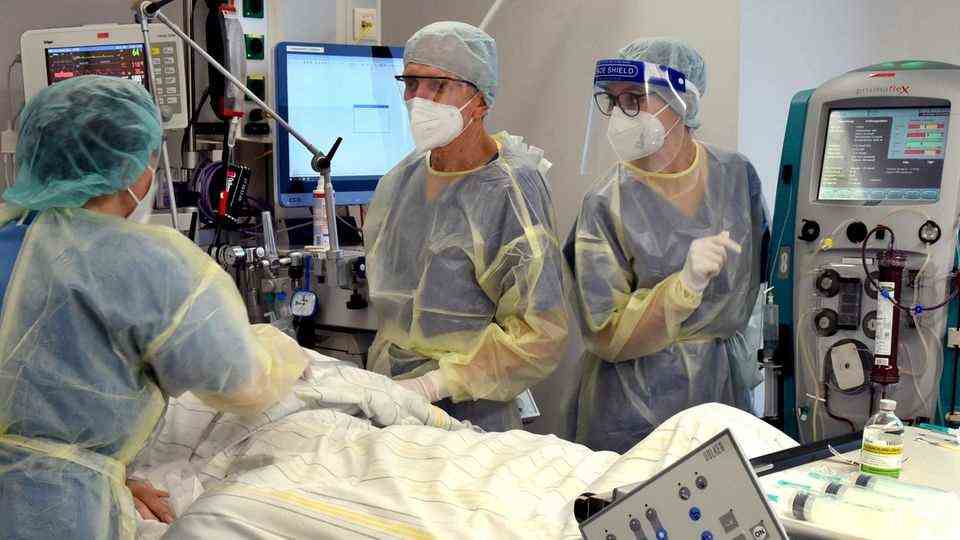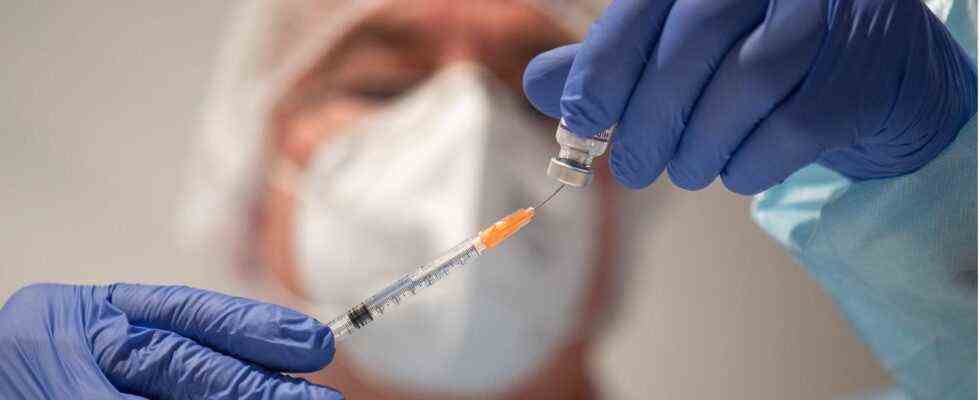Weak antibodies
Better to boost now – why you shouldn’t wait for an omicron vaccine
Many people are getting their booster vaccination these days. Experts advise not to wait for updated vaccines to be refreshed, but to get vaccinated with the vaccines that are currently available.
© Boris Roessler / DPA
Laboratory data confirm what researchers had already suspected: Omikron can escape the antibodies of vaccinated people better than other variants. Is it better to wait for updated vaccines with the booster? Experts give a clear answer.
High numbers of infections, overburdened intensive care units and now also a mutant, against which the antibody protection of vaccinated persons falls significantly: the bad news hardly seems to end in these days of the pandemic. In fact, the first information and data that are currently arriving from the research laboratories are anything but encouraging. They show what researchers had already suspected and are now likely to take concrete forms: An updated vaccine specially tailored to this mutant will very likely be needed against the new omicron variant of the coronavirus.
Why is that?
The omicron variant, which was first observed in South Africa, has numerous mutations in the spike protein with which the virus attaches to human cells and then infects them. It is also the part of the virus that current vaccines use as an antigen. After the vaccination, the body builds up an immune protection against this particular antigen, among other things in the form of antibodies that can neutralize the virus in the body. However: the antigen of the current vaccines is tailored to the original variant of the coronavirus, not to the omicron variant with its numerous mutations.
Researchers have now observed in the laboratory that the antibodies of fully vaccinated people have difficulty neutralizing the omicron variant. The loss of the so-called neutralization activity is around 40 times that of previous variants. This means that significantly more antibodies are required to switch off the virus in the laboratory.
However, there are still many unanswered questions about what this means for the effectiveness of the vaccines in real life. The laboratory results cannot be transferred one-to-one to the human body, since the body’s immune response is much more complex and does not depend solely on antibodies. Researchers are currently assuming that because of the weakening antibody response, there could be more breakthrough omicron infections in vaccinated and convalescent people, but that they should continue to have protection against severe courses through so-called T cells. In addition to antibodies, T cells form another important pillar of the immune system.
Many people are currently wondering what the current findings mean for the vaccination campaign and booster vaccinations. Experts agree on this: Boosters and vaccinations remain important – even with the current vaccines. You continue to recommend the third dose without reservation. After the booster, the number of antibodies and immune cells in the body increases again and even briefly reaches values above the level of the first two vaccinations. So far, more than 16.6 million people in Germany have received a booster vaccination against the coronavirus.
“In general it can be said: the higher the antibody titer (Measure of the number of antibodies; Note by ed.), the sooner the antibodies can neutralize Omikron. That means that a booster vaccination definitely increases the protective effect even compared to Omikron “, writes the Frankfurt virologist Sandra Ciesek on Twitter.
“Don’t wait, but boost”
In addition: In the current winter wave, the virus variant Delta still has the upper hand. The current vaccines offer good protection against these. Although it is expected that Omikron will prevail over Delta in the medium term and become the dominant variant, experts currently still see Delta as the more pressing problem that needs to be armed against.

The immunologist Carsten Watzl expects adapted vaccines “next year at the earliest in February or March”, as he explained to the “Science Media Center”. He recommended not to wait for this vaccine, but to get “vaccinated or boosted now”. On Twitter, he also warned of the risks Omikron poses for the unvaccinated: “Even if vaccinated or convalescent people are more likely to be infected with Omikron, unvaccinated people are even less protected. The probability that they will become infected and become seriously ill has increased significantly with Omikron!”
At the moment the triple vaccination is “the best protection”, also emphasized the Berlin virologist Christian Drosten on Twitter. New vaccines will only be available after the current winter wave. He advised: “Don’t wait, just boost.”



